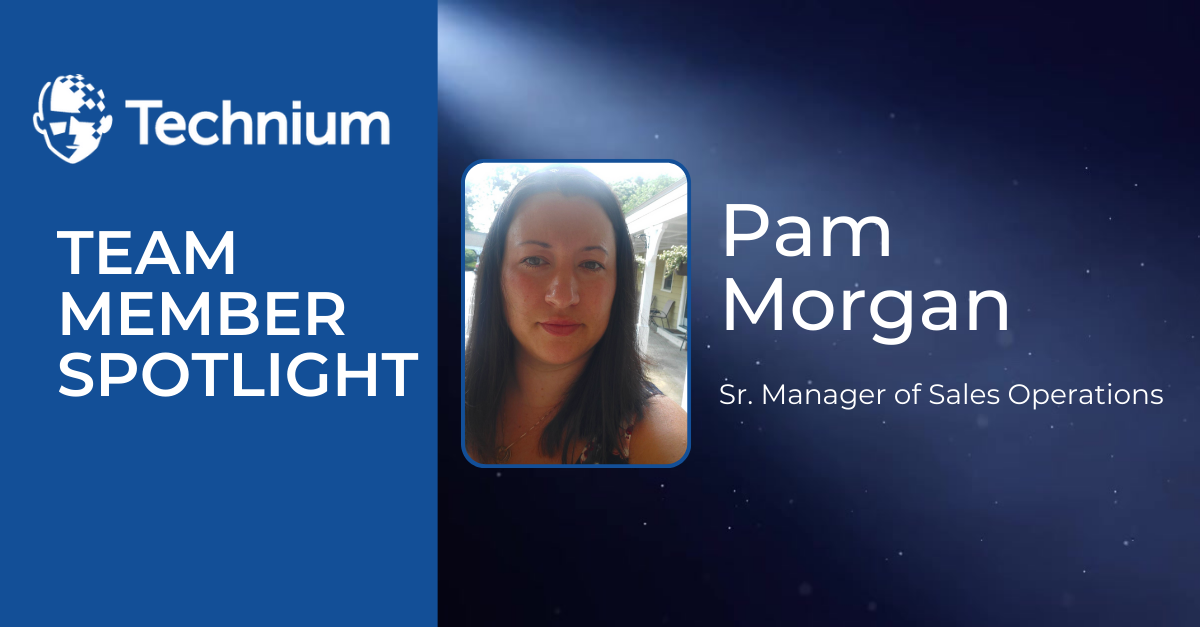Technium's Cyber Camp is a real-world introduction to the exciting field of information technology. Inspired by our CEO's decades of experience, Technium recognized a gap in traditional education: most colleges weren't equipping students with the practical skills needed for IT jobs. After a successful first year, we recently kicked off our second year of Technium’s Cyber Camp, so we sat down with Jim Looney, Senior Training Coordinator to learn more.
Why did Technium start Cyber Camp?
Over the years we’ve realized it is challenging to learn the skills required to do the work we do in a traditional classroom setting. We had an idea to reach out to the local community to see if there was a way we could give back and also create a way for kids to come in and have an opportunity to see what it is like to work in technology and understand a possible path to a career in the future.
What does Technium’s Cyber Camp offer that students can’t get in the existing high school curriculum?
We offer a hands-on specific deep dive in networking and security that is not available in a typical high school computer curriculum. Typical high school curriculums usually include programming, desktop IT and OS systems. We take them down a specific path which is a layer deeper than their curriculum and highlights what we do. We also focus on showing students what a practical career path in networking and security could be.
Why was the Marlborough Public School System interested in partnering with Technium?
The school system saw Cyber Camp as a valuable opportunity to help students explore career options beyond traditional college paths. For those interested in IT, the program offers a chance to gain practical skills and experience. Historically, if someone was interested in becoming a computer Networking and/or Security Engineer they would go to college and get a degree in computer science, and likely still not have all the necessary skills. Through Technium’s Cyber Camp, students are shown a career path in networking and security that does not necessarily need to include a college degree.
How did year one of Technium’s Cyber Camp go?
We learned a lot! We learned how to tailor the learning sessions so the students would be successful. At the end of the year the students take the Cisco Certified Support Technician (CSST) exam which “helps validate skills and qualifications for entry-level IT job roles. It can also be used to prove readiness to pursue associate-level certifications, such as Cisco Certified Network Associate (CCNA) and Cisco Certified CyberOps.” While not part of their grade, this certification exam is an important milestone so we wanted to prepare the students so they could succeed and needed to adjust our teaching methods to work with how kids learn in today’s educational environments. This meant that each student needed to take notes in each session, take practice exams and participate in live labs each week to show them how to build networks in real time.
In addition to the skills to pass the CSST exam, what do you think is most important for students to learn during their time in Technium’s Cyber Camp?
Technium believes that soft skills, such as professionalism, time management, and accountability, are equally important for success in IT. By experiencing a real-world work environment, students develop these essential skills along with their technical knowledge.
So, what sets Cyber Camp apart?
Cyber Camp is more than just a program; it's a stepping stone to a rewarding career in information technology. By combining hands-on experience, specialized curriculum, and career-focused guidance, Technium is helping students build the skills they need to succeed in today's tech-driven world.
- Real-world experience: Students work alongside IT professionals, gaining hands-on experience in networking and security.
- Specialized curriculum: Beyond the basics, Cyber Camp delves into networking and security, offering a deeper dive than typical high school computer courses.
- Career-focused: The program provides a clear path to a career in IT, showing students what a day-to-day job might look like.



 Technium
Technium

![[Press Release] Technium and Marlborough High School Partner to Help Talent Shortage and Advance Careers Through Cyber Camp](https://blog.techniumnetworking.com/hubfs/Student%20girl%20with%20trainer%20working%20on%20computer%20and%20tablet.jpeg)

